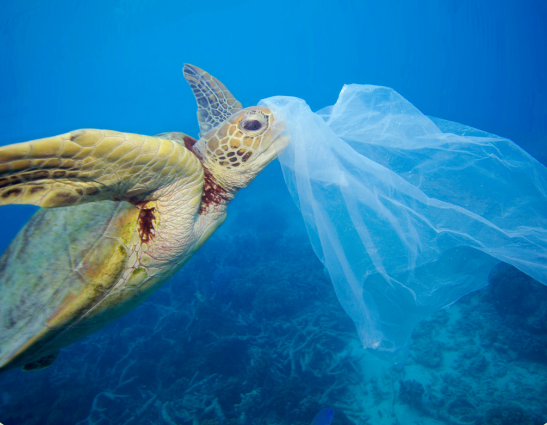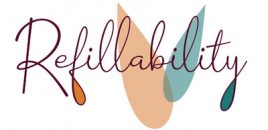
Plastic pollution has become a global crisis, silently threatening our planet’s health and wellbeing. Over the years, our reliance on plastic has grown exponentially, leading to devastating consequences for our environment, wildlife, and human health. It’s time to take action and tackle this urgent issue before it’s too late.
Plastic pollution is a dire environmental problem that arises from the increasing production and improper disposal of plastic waste. According to a report by the World Wildlife Fund (WWF), an estimated 8 million metric tons of plastic enter our oceans every year, equivalent to dumping a garbage truck full of plastic into the ocean every minute. This staggering amount of plastic waste poses a grave threat to marine life, with thousands of marine animals, including whales, sea turtles, seabirds, and fish, being killed or injured by plastic debris.
One of the biggest challenges of plastic pollution is the longevity of plastic. Most plastic items take hundreds of years to degrade, and even then, they never truly disappear. Instead, they break down into smaller pieces called microplastics, which are now found virtually everywhere, from the depths of the ocean to the highest mountain peaks. Microplastics have been found in our food, water, and air, raising concerns about their potential impacts on human health.
The environmental impact of plastic pollution is extensive. Plastic debris can choke or entangle marine animals, causing injuries, suffocation, and death. Marine animals often mistake plastic items for food, resulting in malnutrition, digestive blockages, and even starvation. Plastic pollution also damages marine habitats, such as coral reefs and seagrass beds, which are critical for maintaining marine biodiversity and supporting coastal communities.
Moreover, plastic pollution exacerbates climate change. The production of plastic requires fossil fuels, contributing to greenhouse gas emissions and depleting our natural resources. When plastic waste breaks down, it releases methane, a potent greenhouse gas that is 28 times more effective at trapping heat than carbon dioxide. This adds to the already alarming levels of greenhouse gases in our atmosphere, further accelerating global warming.
Plastic pollution also has socio-economic impacts. Coastal communities that rely on fishing and tourism are particularly vulnerable. Plastic debris on beaches and in the ocean not only spoils the aesthetics of tourist destinations but also harms marine life, which can negatively affect the local economy. Additionally, the cost of managing plastic waste, including collection, transportation, and disposal, puts a burden on local governments and taxpayers, diverting resources from other important priorities.
So, what can we do to combat plastic pollution? It’s not too late to take action and make a difference.
Reduce, Reuse, and Recycle: The three Rs of waste management – reduce, reuse, and recycle – should be the guiding principles in our daily lives. Reduce the use of single-use plastics, such as plastic bags, straws, and bottles, and opt for reusable alternatives. Recycle properly and ensure that plastic waste goes to recycling facilities rather than ending up in landfills or the environment.
Raise Awareness: Educate yourself and others about the impacts of plastic pollution. Share information through social media, engage in conversations, and participate in community events to spread awareness. The more people know about the issue, the more likely they are to take action.
Support Policies and Regulations: Advocate for policies and regulations aimed at reducing plastic pollution, such as bans on single-use plastics, extended producer responsibility, and plastic waste management strategies. Support local initiatives, join community clean-up efforts, and be an advocate for change in your own community.
Embrace Sustainable Alternatives: Look for sustainable alternatives to plastic in your everyday life. Choose products made from eco-friendly materials, such as glass, metal, or paper, and support businesses that are committed to reducing their plastic footprint. Support initiatives and businesses that promote circular economy principles, where products are designed to be reused, recycled, or composted, rather than ending up as waste.
Participate in Clean-up Efforts: Join local clean-up events or organize your own clean-up activities in your community. Clean up beaches, rivers, parks, and other natural areas to prevent plastic waste from entering our oceans and ecosystems. Remember to follow proper waste disposal practices and recycle or dispose of collected waste responsibly.
Reduce Microplastics: Be mindful of products that contain microplastics, such as personal care products and synthetic fabrics, which can release microplastic particles when used or washed. Opt for natural and biodegradable alternatives, and wash your clothes in a microfiber-catching laundry bag to prevent microplastic pollution from entering our waterways.
Support Innovative Solutions: Stay informed about new technologies and innovations aimed at addressing plastic pollution, such as bioplastics, compostable packaging, and plastic waste upcycling. Support and promote these solutions to encourage a shift towards a more sustainable and circular economy.
Educate Future Generations: Educate children and young people about the importance of reducing plastic pollution and cultivating sustainable habits from an early age. Encourage environmentally responsible behaviors, such as proper waste disposal, recycling, and reducing plastic use, among younger generations who will be the custodians of our planet in the future.
Advocate for Change: Use your voice to advocate for change at a broader level. Write to your local representatives, government officials, and businesses, urging them to take action on plastic pollution. Support organizations and NGOs working towards tackling plastic pollution through policy advocacy, research, and conservation efforts.
Lead by Example: Be a role model in your community by adopting sustainable practices in your daily life. Reduce your own plastic consumption, properly dispose of waste, and participate in clean-up efforts. Encourage and inspire others to join you in the fight against plastic pollution.
In conclusion, plastic pollution is a silent threat that poses severe environmental, wildlife, and human health risks. However, it’s not too late to take action and make a difference. By reducing plastic consumption, promoting sustainable alternatives, supporting policies and regulations, participating in clean-up efforts, and educating others, we can combat plastic pollution and create a cleaner and healthier planet for ourselves and future generations. Remember, every small step counts, and together we can make a significant impact in the fight against plastic pollution. Let’s take action now and be part of the solution!
